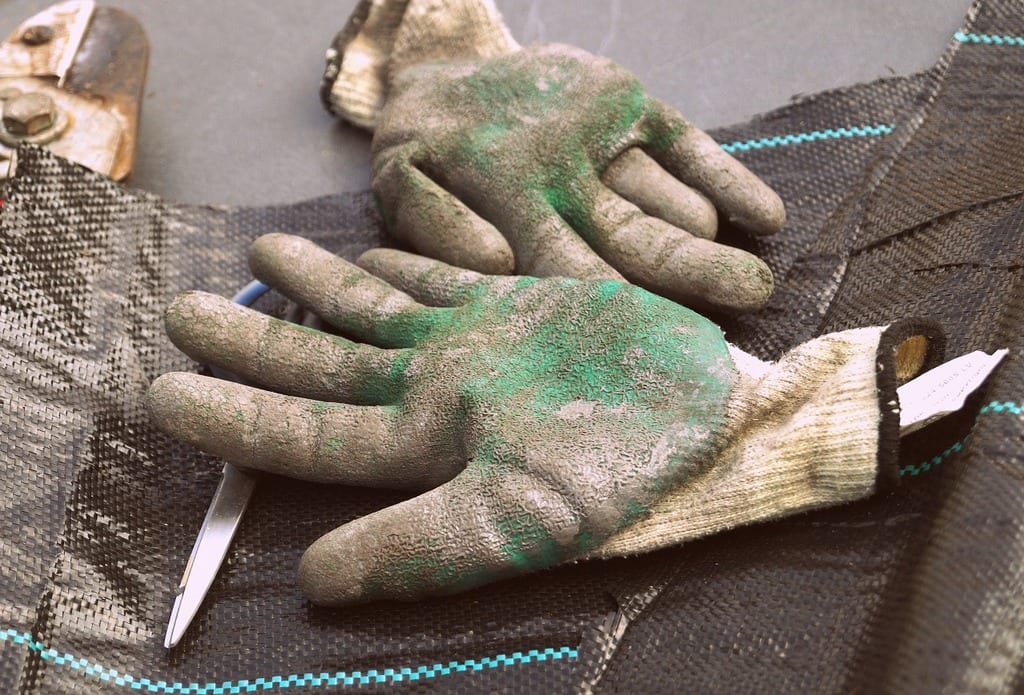
Japanese Knotweed removal is a highly complicated process, but one which must be undertaken with urgency. If left untreated, it can quickly become a serious problem, causing structural damage to properties and ruining garden landscapes.
The recommended approach when dealing with this invasive plant is to consult a professional Knotweed removal company, who can provide a site specific management plan with an insurance backed guarantee. We would not suggest dealing with this yourself as there is a chance you could make the problem worse and potentially spread the Knotweed over a larger area and even off site.
Need To Remove Japanese Knotweed? Here Are 5 Things You Must Know
- It needs dealing with urgently –
Japanese Knotweed is the fastest growing invasive weed in the UK. During summertime, it can grow at a rate of 10cm per day and its deep root system can extend up to 3m underground. The sooner you identify it, the sooner you should consider treating Japanese Knotweed. For help with identification, see our previous blog post.
- Removal Methods –
No two sites are the same so there is no ‘one size fits all’ treatment method if you have knotweed in your garden. There are different methods of removal and sometimes it can require a combination of different approaches to fully eradicate the weed. Legitimate treatment methods for Japanese Knotweed include:
-
-
- Chemical Control – This involves applying specialised herbicides to the plant repeatedly over several growing seasons. This is not the fastest, but is sometimes the most practical option in terms of affordability and minimising disruption on residential properties.
- Excavating The Weed And Its Rhizome – This method involves extracting Japanese Knotweed out manually, as well as excavating the infested soil. Both the plant and the infested soil must then be transported to a licensed waste management facility to avoid spreading the weed. It is illegal to dispose of Japanese Knotweed in your normal ‘green waste’ bins.
- On-site Burial/Root Barrier Membrane – Once excavated, Japanese Knotweed can be buried on site, if it is covered with a root barrier membrane to inhibit regrowth.
- Chemical Control – This involves applying specialised herbicides to the plant repeatedly over several growing seasons. This is not the fastest, but is sometimes the most practical option in terms of affordability and minimising disruption on residential properties.
-
- Dispose of it correctly –
There is much legislation around Japanese Knotweed and these should be strictly followed! The Wildlife and Countryside Act 1981, states that it is illegal to cause Knotweed to spread in the wild, via the transfer of contaminated soil (even if inadvertent). Ignorance is not an excuse – Failure to follow correct disposal procedures could land you with a £5000 fine and up to 2 years in prison.
To prevent this from happening, it is imperative you use a licensed waste carrier who will take it to an authorised landfill site, when removing Japanese Knotweed from your property. If you need further advice relating to this, we will be happy to help, give us a call on 020 3005 8755.
- Be aware of the financial complications –
The majority of UK mortgage lenders will refuse to lend against a Japanese Knotweed infested property, unless it has a 10 year insurance backed guarantee. Attempts to remove Knotweed yourself will not be enough to reassure lenders that the problem is being sufficiently managed.
CYB Environmental can provide a comprehensive Japanese Knotweed Management Plan, along with a 10 year insurance backed guarantee, which is recognised by lenders. If you are attempting to sell your house in the foreseeable future, the sale value might be significantly decreased if you attempt to treat the problem yourself, without a professional guarantee. On top of this, it could be difficult to find a buyer if potential buyers cannot get a mortgage on the property. We are Japanese Knotweed mortgage experts, for more information contact us or read our mortgage problems guide.
- Stick to proven methods –
Despite what you might have read in online forums, we advise against trying to use cheaper, more readily available ‘natural’ treatment methods such as vinegar, lime juice or coffee. There is no convincing evidence that these methods work at all. By neglecting legitimate treatment methods, you run the risk of allowing Japanese Knotweed to grow and spread on your property and in some cases can make the problem worse.
If you have any concerns, get in touch with CYB Environmental
As you can see, Japanese Knotweed removal comes with lots of complications. If you want to speak to a professional help, CYB Environmental are PCA (Property Care Association) accredited and are experts in all Japanese Knotweed related matters.
We service London, Bristol and Cardiff. For consultation or removal call us today, on 020 3005 8755.

